COVID-19 Immunology Study is a Collaborative Effort of Many
College of Medicine Researchers and Students Work with Tower Health on IMPACC Trial
September 30, 2020
By Lisa Ryan, web content writer
The pursuit for more information about the COVID-19 coronavirus has led a group of College of Medicine researchers to West Reading, Pa. and back again, with some of their vital work taking place before the sun is up.
Researchers are collecting and analyzing biological specimens, including blood, endotracheal aspirates and nasal swabs, from COVID-19 patients who have been admitted to Tower Health’s three Philadelphia-area hospitals – Chestnut Hill, Pottstown, and Reading Hospital – as a result of their illness. By taking these samples and analyzing their immunological implications, researchers hope to answer questions like why some people with COVID-19 have severe symptoms and others have none, or why COVID-19 is fatal for some patients and not others.
“This is basically the largest study in the United States right now that will help us decipher the immunology or immunological response to the virus,” said Mariana Bernui, PhD, assistant professor, Medicine and Microbiology & Immunology and clinical research manager, Infectious Diseases and HIV Medicine. “Hopefully with this information, we can develop better therapeutics and learn a little bit more about this virus to defeat it sooner rather than later.”
Dr. Bernui is the lead and site coordinator for the College of Medicine IMPACC team, handling logistics and operations in the laboratory.
The project’s principal investigators are Charles B. Cairns, MD, the Walter H. and Leonore Annenberg Dean and Senior Vice President of Medical Affairs, College of Medicine, and Elias El Haddad, PhD, the director of the MD/PhD dual degree program and professor, Infectious Diseases & HIV Medicine.
College of Medicine researchers are collaborating with Tower Health colleagues in West Reading, Chestnut Hill and Pottstown as part of a nationwide COVID-19 study funded by the National Institutes of Health’s (NIH) National Institute of Allergy and Infectious Diseases (NIAID). For the “IMmunoPhenotyping Assessment in a COVID-19 Cohort” or IMPACC study, the College of Medicine and Tower Health join 9 other leading medical institutions to better understand varying immune responses to COVID-19, and thereby better understand the virus.
“The information could not only help with finding pharmacological ways to treat the virus, but also with vaccine development,” Bernui said.

Charles Cairns, MD
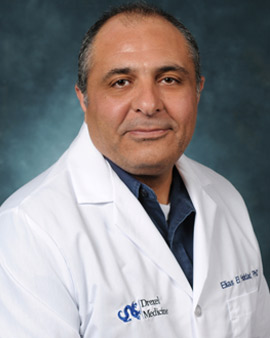
Elias El Haddad, PhD
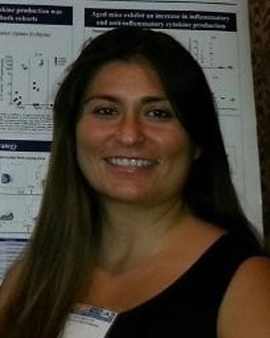
Mariana Bernui, PhD
Findings from the College of Medicine and Tower Health’s work will be published alongside the results of other IMPACC sites, with one overarching consensus, according to El Haddad. Participating institutions also share patient samples for experimental use.
Each institution is working not only on the IMPACC study, but also on institutional research on preventing and treating COVID-19 infections. Dr. El Haddad and other College of Medicine faculty members are collaborating on COVID-19 vaccine research, funded by a grant from the Commonwealth of Pennsylvania.
“In this day and age, it’s difficult to have one lab do multiple things,” El Haddad said. “Collaboration is the name of the game.”
He said it is common – and crucial – for labs to share costs, effort and expertise when their respective research groups are working to answer the same question.
In the College of Medicine’s case, the IMPACC study has collaboration all the way down, well beyond the study’s nationwide network of researchers.
The students will tell you, they go early in the morning at 4 or 5 a.m. to get samples, or late at night. They’re very dedicated individuals.
Dr. El Haddad
El Haddad said Dean Cairns helped jump-start collaboration between the College of Medicine researchers, who needed to recruit hospitalized COVID-19 patients into the study, and Tower Health, whose staff was at the time admitting a large number of COVID-19 patients for treatment.
Several Tower Health physicians – some in West Reading and some in Chestnut Hill – are helping recruit patients for the study. Research coordinators, nurse practitioners, and technicians from Tower Health are also pitching in to help make the project a success, according to El Haddad.
“This is one of the first instances of really hands-on collaboration with Tower,” El Haddad said. “There was a huge amount of intent to really make this successful from both sides. It’s been a very pleasant and successful collaboration, and this is something that will continue.”
Tower Health technicians joined the team and learned how the College of Medicine researchers were processing their specimens this summer, something Bernui said helped with the other team members’ workloads.
The technicians have also filled the shoes of student researchers as needed, since some MD Program students’ availability changed as summer turned to fall and regular coursework resumed.
Along with other IMPACC study participant institutions and the staff at Tower Health, student researchers have also been key collaborators in the immunology research.
Brett Croen, Brandon Rogowski and Nick Semenza, all in the MD Program Class of 2023, began assisting this summer with the processing of specimens and with data collection and analysis. PhD candidate Jennifer Connors, a researcher in El Haddad’s lab, is also working on the IMPACC study.
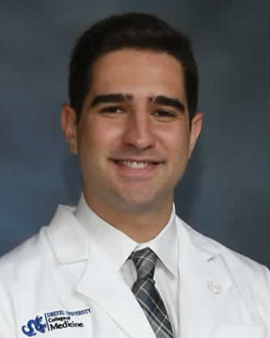
Brett Croen
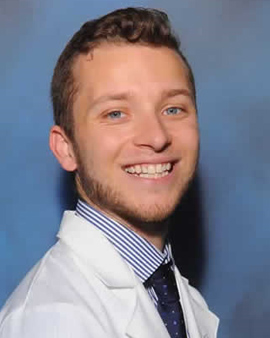
Brandon Rogowski
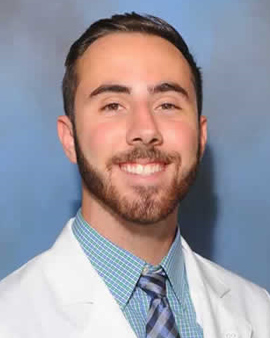
Nick Semenza
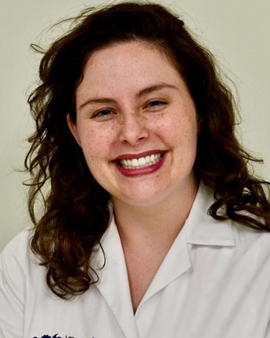
Jennifer Connors
The MD Program students have been working closely during sample collection and analysis with Bernui, Connors, and some Tower Health colleagues.
“I’ve had very little wet lab experience, so even something as simple as pipetting patient samples was something I hadn’t done in a while, and needed to have it re-taught,” Semenza said. “Dr. Bernui has been an excellent mentor, and so has Jen Connors – they’re really nice and very good at explaining procedures.”
Rogowski said he has been learning a great deal not only from his lab work, but also from listening to the other researchers’ perspectives in team-wide Zoom meetings. He’s learning from Dean Cairns, and Bernui and Haddad, as well as from Tower Health doctors and nurses.
“It’s great how many different people are involved in the study,” Rogowski said. “I’m trying to soak up as much as possible from that.”
Croen said he is learning from being part of this research how a leader or principal investigator should organize a study. It is knowledge he’ll draw on as a physician conducting his own studies.
For Connors, the IMPACC study is especially relevant to her professional future: her ultimate goal is to study immunological responses to emerging infectious diseases.
She said collaborating with MD Program students, Dean Cairns, new faces from Tower Health, and other institutions’ IMPACC researchers has been another exciting element of the project.
“I have these research background skills, but I don’t think a lot of PhD students get to communicate as broadly as I’m getting to right now,” she said. “It’s great to be able to get to drive some of these research projects, and then to be able to collaborate with all of these other institutions.”
Connors’ supervisor is grateful for her contributions and those of the MD Program students.
“The students will tell you, they go early in the morning at 4 or 5 a.m. to get samples, or late at night,” El Haddad said. “They’re very dedicated individuals.”